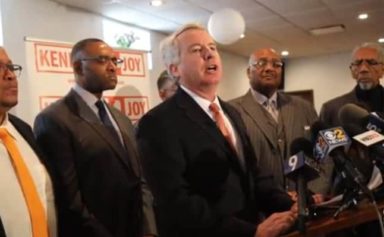At a dramatic and emotional meeting last night of the Chicago School Board, the board voted unanimously to to close 49 schools in the nation’s third-largest district and move thousands of children to new schools, angering parents and community leaders who claim the closings will devastate neighborhoods and ignite further gang skirmishes.
It was the culmination of a months-long saga that has pitted Mayor Rahm Emanuel against the Chicago Teachers Union and residents in the mostly black and Latino neighborhoods effected by the closures.
The school board, which voted 6-0, accepted the recommendations of schools chief Barbara Byrd-Bennett.
“The greatest challenge facing our school system right now is that tens of thousands of children every year are trapped in underutilized schools and under-resourced schools,” said Byrd-Bennett, who had to pause her remarks more than once when protesters began shouting. “We cannot maintain a system that cannot be sustained and does not benefit the children.”
Middle-class families have been fleeing Chicago schools for years, to the point where the district now has 145,000 fewer school-age children than it had more than a decade ago. The district had already closed about 100 schools since 2001—a move that some community leaders linked to the gun violence that has been overwhelming some city neighborhoods, as young men find themselves crossing into the territory of rival gangs to attend school.
With the new closings, the Chicago Public Schools hopes to save about $500 million over 10 years—in the midst of a $1 billion deficit.
CTU President Karen Lewis said the union would be appealing to the courts to stop the closings. She vowed to activate the public to take out their anger by stopping the re-election of Mayor Emanuel, who has said he was prepared to take a political hit for the closings.
“Well, he will,” Lewis said. “I’m glad he’s prepared.”
Emanuel’s office released a statement after the vote, acknowledging that the closings were “incredibly difficult.”
“I firmly believe the most important thing we can do as a city is provide the next generation with a brighter future,” he said in the statement.
Ald. Ameya Pawar, 47th, one of several City Council members who spoke on behalf of schools in their wards, tried to appeal to the board members by arguing that schools were the glue of many neighborhoods.
“Closing a school is akin to closing a community,” Pawar said.
But Byrd-Bennett said that doing nothing to address underused and poorly performing schools was harmful to children.
“We can no longer embrace the status quo because the status quo is not working for all Chicago schoolchildren,” Byrd-Bennett said. “It is imperative that you take the difficult decision but essential steps.”
School systems in many large U.S. cities, such as Philadelphia, have also been closing schools. Philadelphia officials voted in March to close 23 public schools, an even larger share of the district than in Chicago.
When she cast her vote, Chicago school board member Mahalia Hines said the problem facing city schools was like a nervous dental patient deciding whether to put off necessary oral surgery.
“The decay is too much, and that’s why so many middle-class African-Americans have left the city,” she said.
At King Elementary on the West Side, parents tried to grasp the magnitude of the board’s decision to close their school.
“I’ll home-school both of my children before they go to Jensen,” said Nikkia Pierce, referring to the school King youngsters will be shifted to in the fall. “It’s sad that they really don’t care about these kids. I’m about ready to get out of Chicago.”


